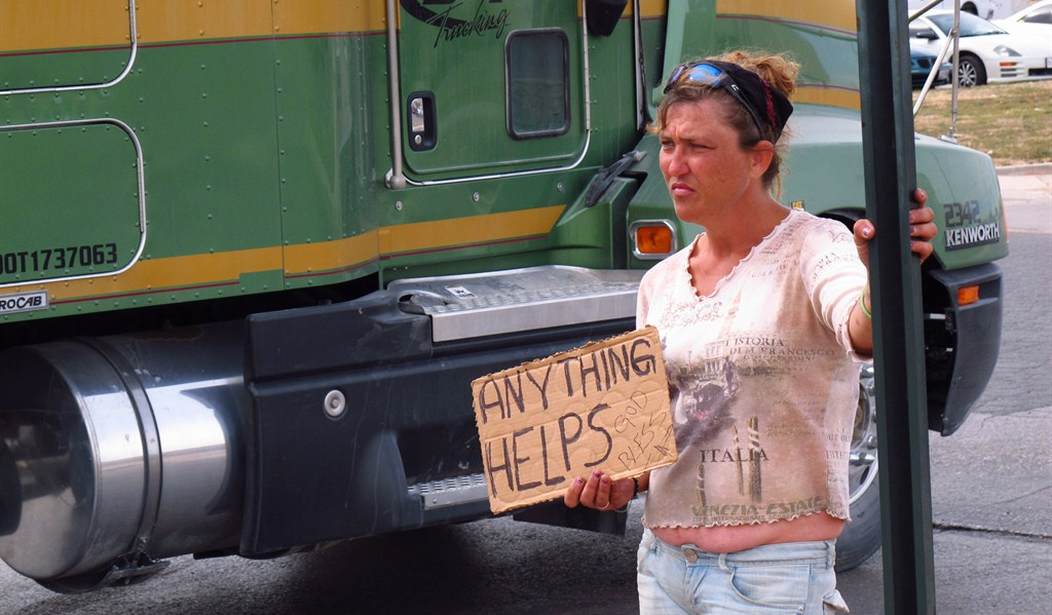ThinkProgress writer Igor Volsky seems genuinely excited that fewer than 15 out of 92 federal anti-poverty programs are somewhat effective. The results came out of a report commissioned by Representative Paul Ryan to evaluate the effectiveness of government programs put in place to combat the problem. The War on Poverty, 50 Years Later evaluates the at least 92 federal programs the government has created and finds that, “Despite trillions of dollars in spending, poverty is widespread.”
According to the report:
• In 1965, the poverty rate was 17.3 percent. In 2012, it was 15 percent.2
• Over the past three years, “deep poverty” has reached its highest level on record.
• About 21.8 percent of children live below the poverty line.
So what are some of the most effective programs? Interetingly, one of them, The Child Tax Credit, was expanded dramatically under President Reagan, who deemed it “the best anti-poverty, the best pro-family, the best job creation measure to come out of Congress.” Another, the Earned Income Tax Credit, was also greatly expanded by Reagan.
Some of the claims of “effective” by Volsky are dubious at best. One such is Rural Housing Assistance Grants. “The report finds that the grants ‘allow very low-income elderly homeowners on a fixed budget to remain at home and independent.’” Volsky leaves out the first sentence under “Evidence,” which reads “Rural Housing Assistance Grants lack significant analysis on program effectiveness.” And this is an article about effectiveness?
The report points out declining labor-force participation, noting that the labor-force participation rate has fallen to a 36-year low of 62.8 percent and that the CBO projects the rate will fall to 60.8 percent over the next decade. But pinning people giving up on their job searches to greater access to aid is dubious at best. Most people prefer to work. Aiming our efforts at making that easier, by reining in job-killing regulations, smacking down licensure laws and ending corporate welfare, which kills new jobs by stifling innovation, would do more to help boost employment levels than reforming aid.
Recommended
Consider that $110 billion in government subsidies last year went to just 965 large companies.
The issue with poverty and unemployment isn’t too much spending on aid, it’s too little growth. Since 2000, growth has averaged just 1.8 percent annually, half the rate seen in the last half of the 1900s. What would employment look like with normal growth? According to the CBO, employment was about 6 million jobs short of where it would be if labor markets were back to “normal.”
The reason to critically evaluate federal anti-poverty programs isn’t to justify slashing their budgets, but because the poor need effective aid. If we’re going the spend the money, let’s spend it right.

























Join the conversation as a VIP Member